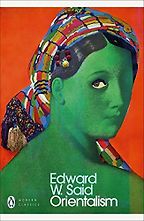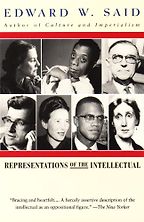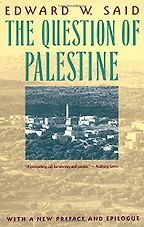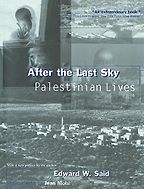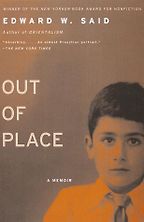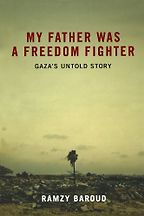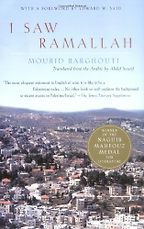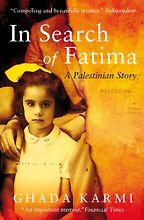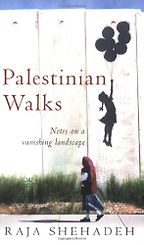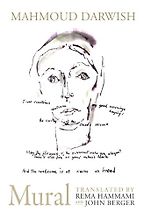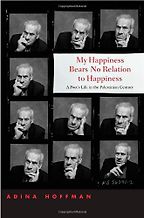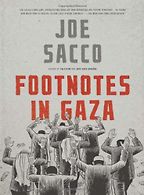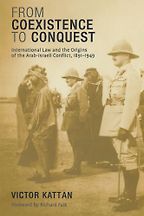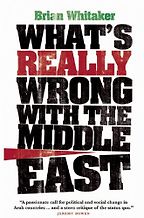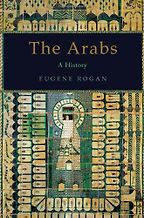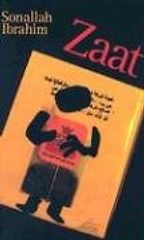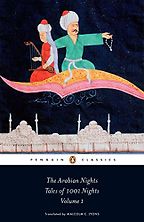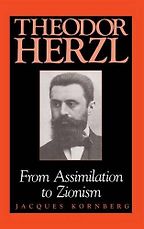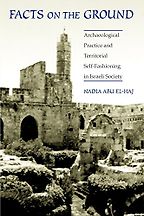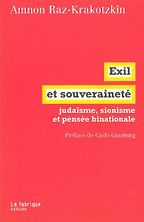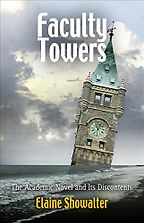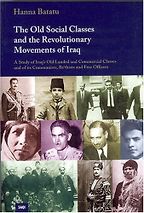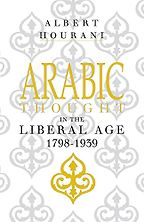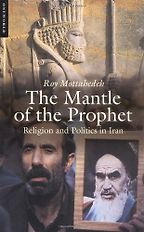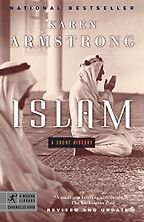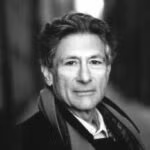
Books by Edward Said
“Edward Said was a Palestinian American scholar and probably one of the most influential intellectuals of the second half of the 20th century. Mainly through his book Orientalism, although he wrote much more…Said was born in Jerusalem to Palestinian parents. He grew up in Cairo. His father was a very successful, wealthy businessman. His parents sent him to finish his studies at a prestigious boarding school in New England and from there he proceeded to study and work at the top Ivy League universities. He went to Princeton, Harvard and then spent his entire career at Columbia University as a professor of comparative literature. He was also politically active as a public intellectual and discovered at a certain point in his life, although not at an early stage, the issue of Palestine. He became one of the most important champions of the cause of the Palestinians and had a very interesting interaction and relationship with critical Israelis like myself. I myself had a personal friendship with him. I initiated the translation of Orientalism into Hebrew for which he wrote a special preface. He was influential on me not only in terms of his writings but also as a friend.” Historian Gabriel Piterberg in his interview on the best books on Zionism.
For a biography on Edward Said we recommend Places of Mind: A Life of Edward Said by his student and friend Timothy Brennan. Said also wrote a memoir, Out of Place.
“I’ve read the book several times. It took me quite a bit of time and energy to appreciate the theoretical and philosophical significance of Orientalism. If you ask me, and I don’t think I’m exaggerating, it’s one of the most influential intellectual histories of the relationship between a core of Western scholarship and the Arab/Islamic world.” Read more...
The best books on The Middle East
Fawaz A. Gerges, International Relation
“So the reason I chose Edward Said’s wonderful book, Representations of the Intellectual, is that he argues very forcibly for the value of intellectual life. There’s an attitude in the UK, that if you call yourself an intellectual, or say you are concerned with intellectual things, most people think that’s analogous to something mildly indecent. Said’s book—which was based on his Reith lecture series—is a fantastic portrait of an intellectual life, and intellectuals at work. One of the things he says is that part of an intellectual’s work is the art of representing the world, of stylizing it, of understanding ideas and conveying them to people. That is one of the things that is so brilliant about Said. He then takes a whole range of intellectuals—from Simone de Beauvoir to Jean Paul Sartre to James Baldwin—and talks about them and their craft of representing the world and representing their ideas.” Read more...
Les Back, Social Scientist
“The book was a sequel to Orientalism and is one of three books, the third being Covering Islam, that Said wrote at the end of the 1970s and in the early 1980s. The Question of Palestine is his take on how Palestine was dispossessed and how Zionism is really a European project. In that sense you can say that The Question of Palestine was for him a personal case study of Orientalism. If Orientalism was the way that Europe came to view the rest of non-Europe, especially Arabs and Islam in general, The Question of Palestine looks in particular at the colonial venture in Palestine, the way Palestine was viewed in Europe and how it came to be regarded as belonging to the Jews who had a right to return there.” Read more...
The best books on Zionism and Anti-Zionism
Gabriel Piterberg, Historian
“He insisted that news is partial and dependent on official interpretation that may serve a private interest rather than a national interest.” Read more...
The best books on The Truth Behind the Headlines
Lorraine Adams, Journalist
” It’s one of my favourite books by the author. I even prefer it to his memoir, Out of Place. While working as a consultant at the U.N. International Conference on the Question of Palestine, Said suggested they hang photographs of Palestinians, taken by the leading Swiss photographer, Jean Mohr, in the entrance hall at the main venue in Geneva. The only text allowed on the captions was place names. The situation upset him and he decided to write a book about the pictures. In the process, he wrote about his own exile and memories of 1948. The photographs were taken in refugee camps, Lebanon, the West Bank and other areas. He writes in the introduction that the collection is ‘a personal rendering of the Palestinians as a dispersed national community… proud, tender, miserable, funny, indomitable, ironic, paranoid, defensive, assertive, attractive, compelling.’ The result is touching and beautifully accomplished.” Read more...
Raja Shehadeh, Lawyer
“This is a very intimate book about his young life. His parents were domineering or distant and he talks about always feeling stranded, left behind, out of place. This book resonates with me, not just because I absolutely love the man but because it mirrors a lot of my own feelings about being a diaspora Palestinian – you perpetually feel out of place, you never really have a sense of belonging, just existing in the winds wherever you are.” Read more...
Susan Abulhawa, Novelist
Interviews where books by Edward Said were recommended
Palestinian Writing, recommended by Susan Abulhawa
Susan Abulhawa, author of Mornings in Jenin, chooses five books about Palestine by Palestinian writers. She says what she sees among the young people in Palestine is humbling, ‘they have such remarkable spirit’
The best books on Palestine, recommended by Raja Shehadeh
Raja Shehadeh’s choices highlight the suffering endured by the Palestinian people over the last 100 years. But they also celebrate the country’s natural beauty, vibrant culture and multi-textured humanity.
The best books on The Truth Behind the Headlines, recommended by Lorraine Adams
Why do huge stories sometimes go unreported? Our news media are good at promulgating conventional wisdom but find it much more difficult to deal with evidence that contradicts it, says the former Washington Post reporter
The best books on Understanding the Arab World, recommended by Issandr El Amrani
The influential blogger and journalist tells us why there’s so much misinformation about the Arab world, and suggests what we should read to improve our understanding of the region’s history and current turmoil
The best books on Zionism and Anti-Zionism, recommended by Gabriel Piterberg
Israeli historian Gabriel Piterberg tells us about works of scholarship that have challenged the Zionist Israeli narrative of modern history.
-

1
Killing Thinking: The Death of the Universities
by Mary Evans -

2
Representations of the Intellectual: The 1993 Reith Lectures
by Edward Said -

3
The Great University Gamble: Money, Markets and the Future of Higher Education
by Andrew McGettigan -

4
Faculty Towers: The Academic Novel and Its Discontents
by Elaine Showalter -

5
Teaching to Transgress: Education as the Practice of Freedom
by bell hooks
The best books on Academia, recommended by Les Back
The best books on Academia, recommended by Les Back
Current UK higher education policies, which treat students as consumers, are not only killing thinking but also likely to lead to a financial crisis. And yet, academia is a beautiful vocation, with the power to transform lives year in, year out. University of London professor, Les Back, picks the best books on academia.
The best books on The Middle East, recommended by Fawaz A. Gerges
The Middle East has been and still is much misunderstood. Here Fawaz A. Gerges, a professor and Middle Eastern specialist at London School of Economics, recommends five pioneering works of history and social science that will help you to understand the evolution of the region’s society and politics.
